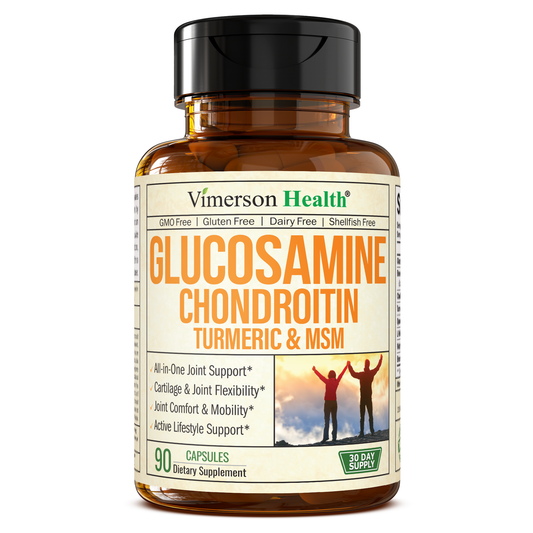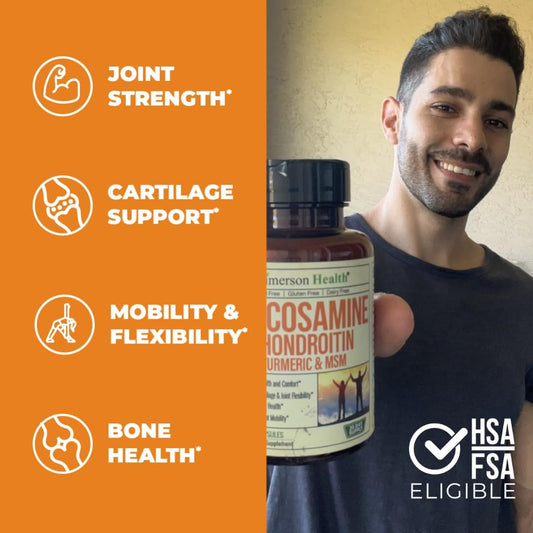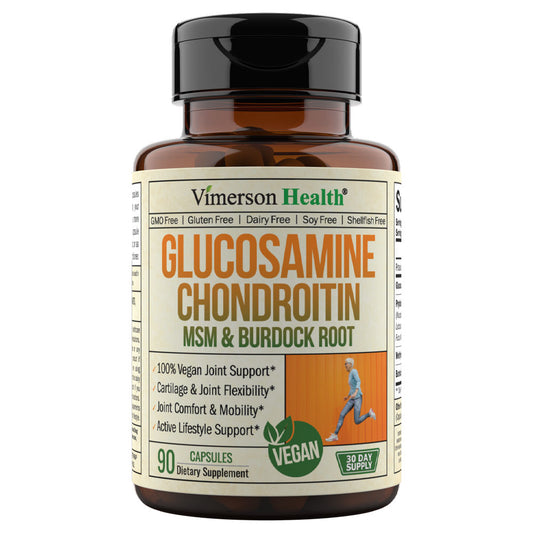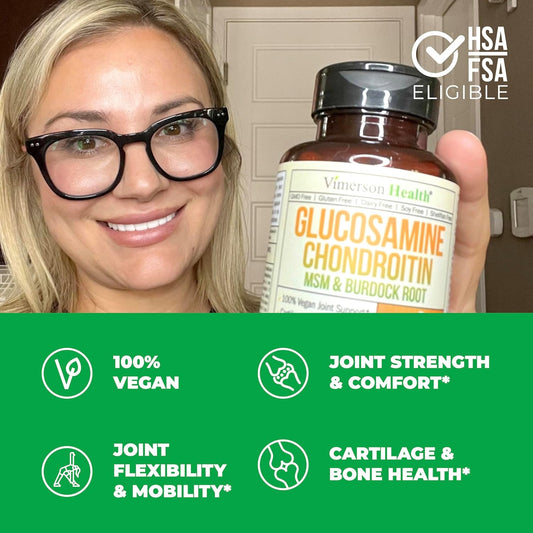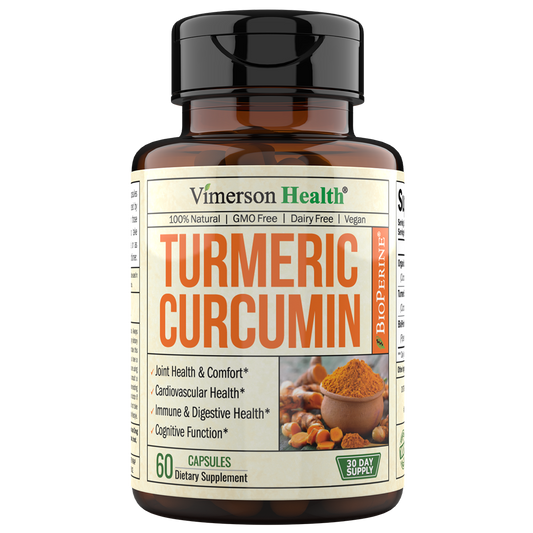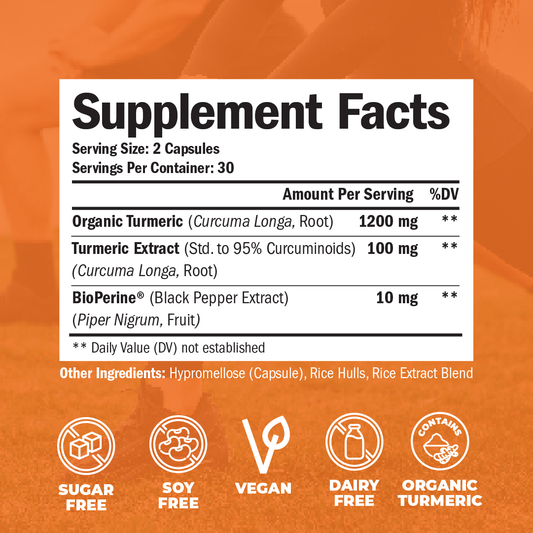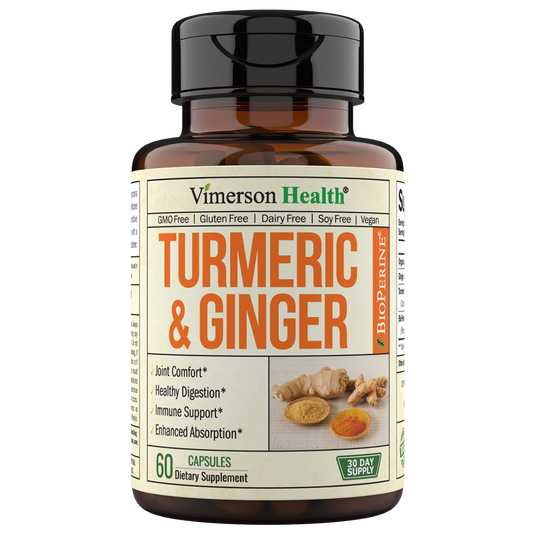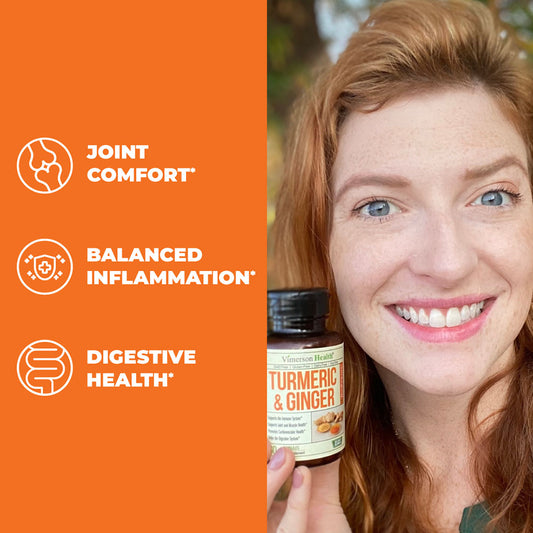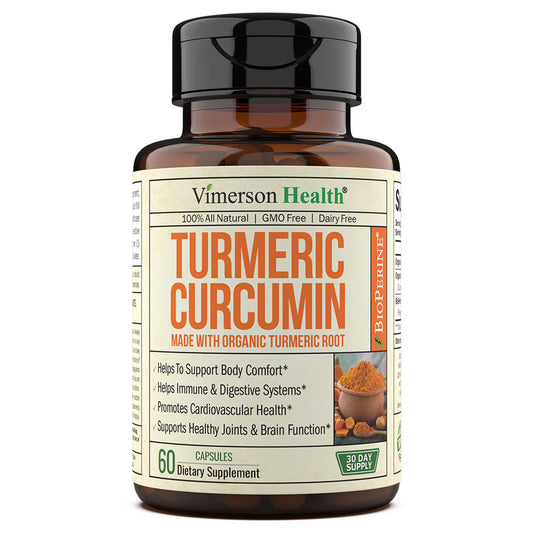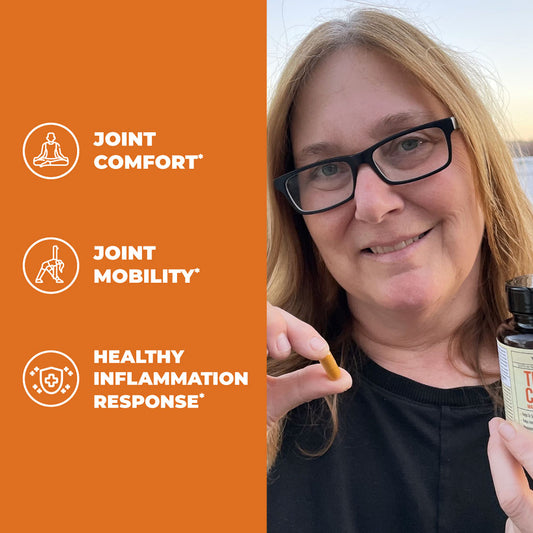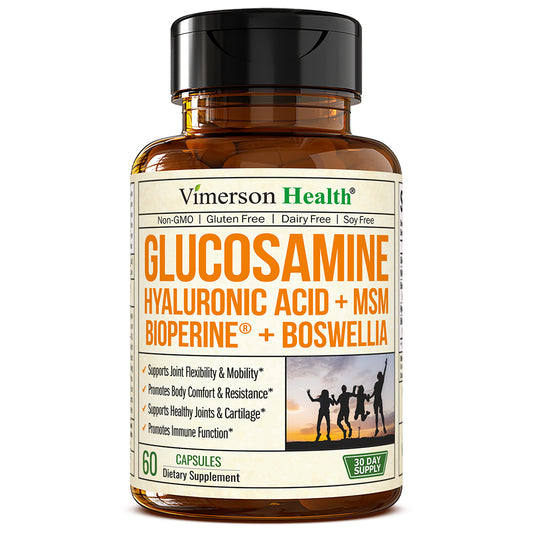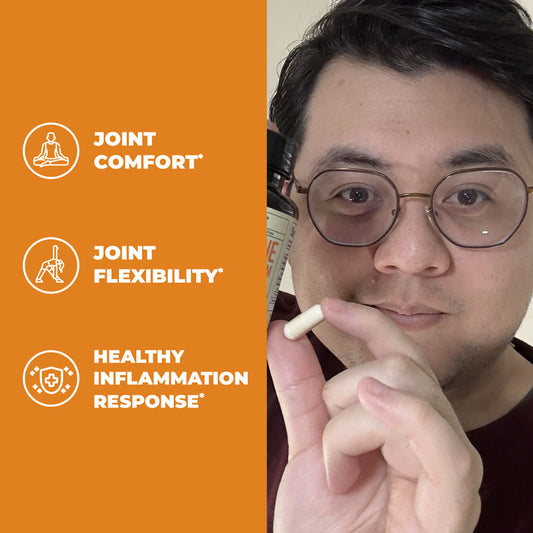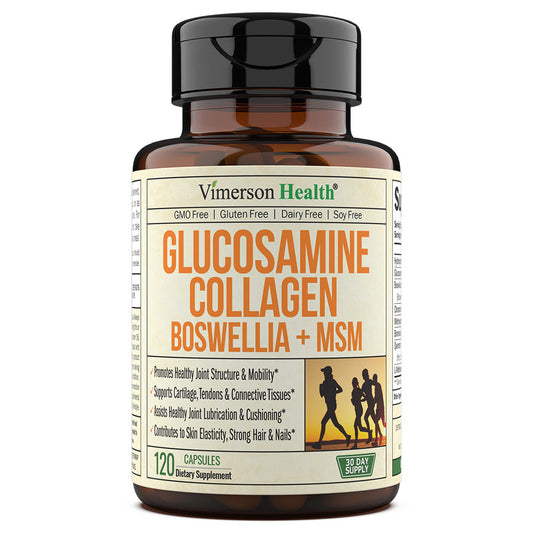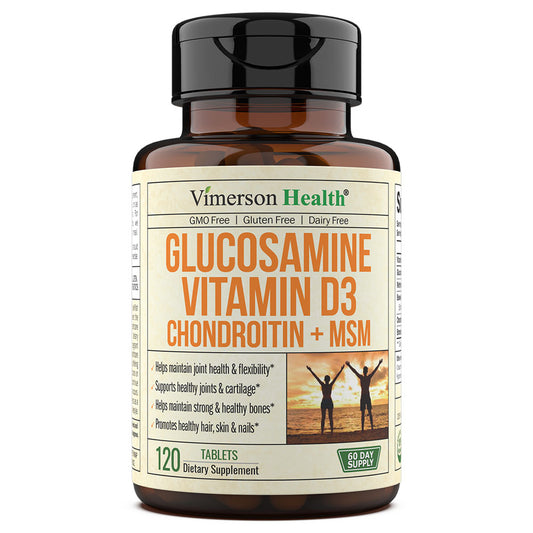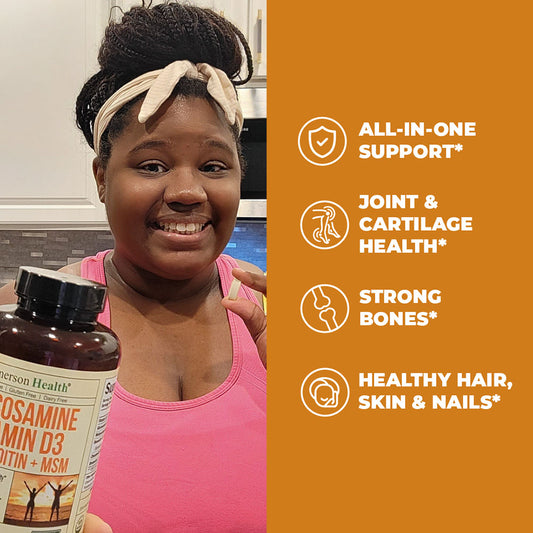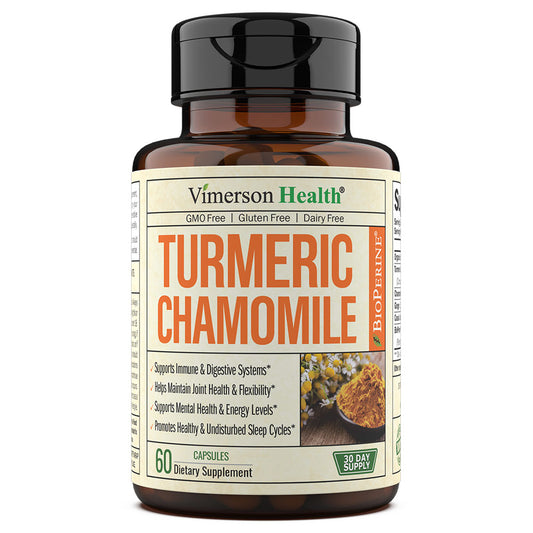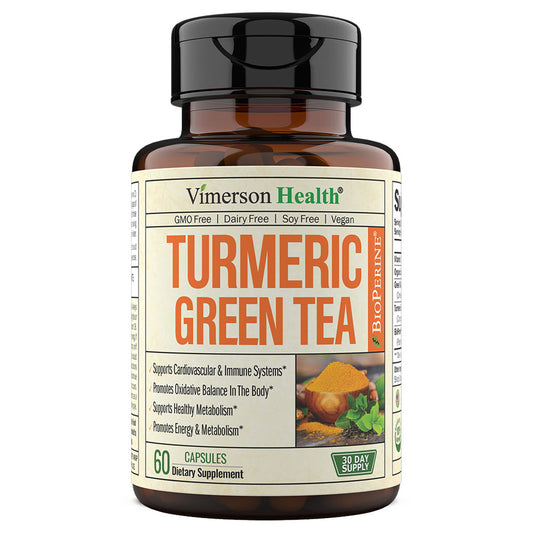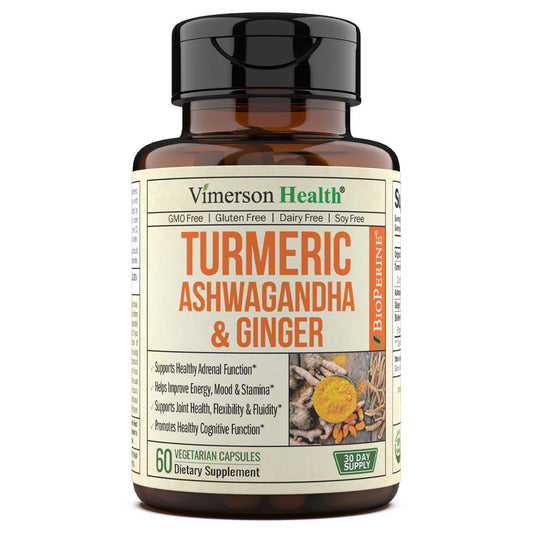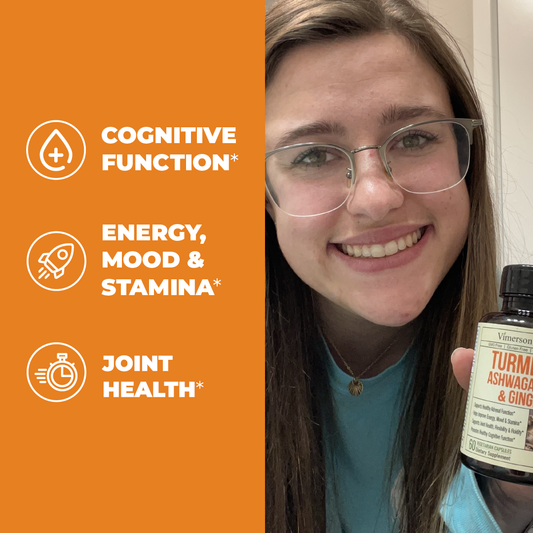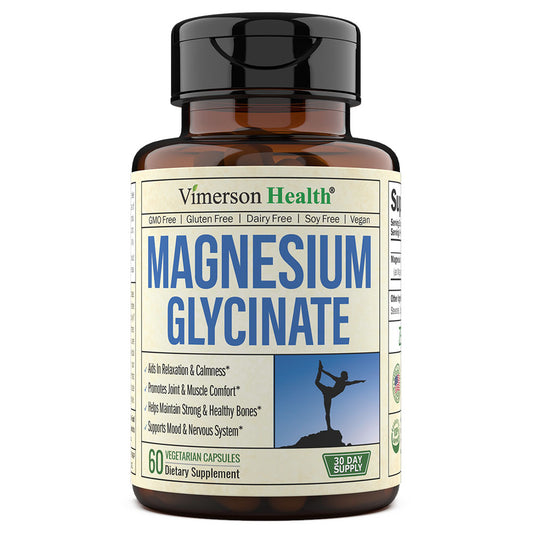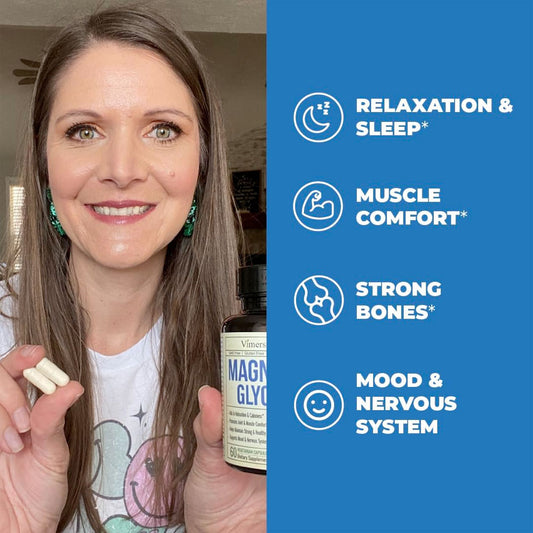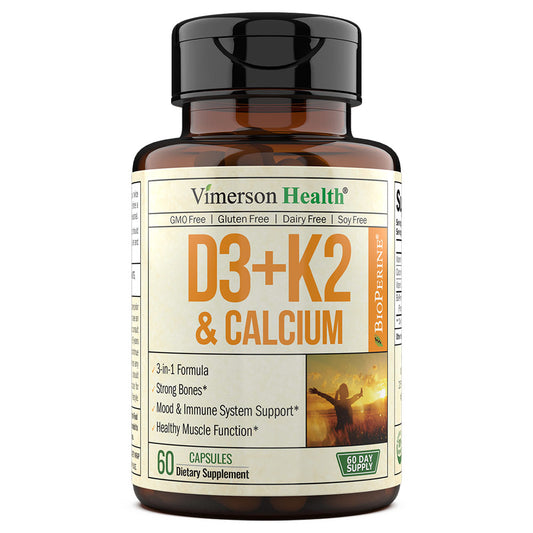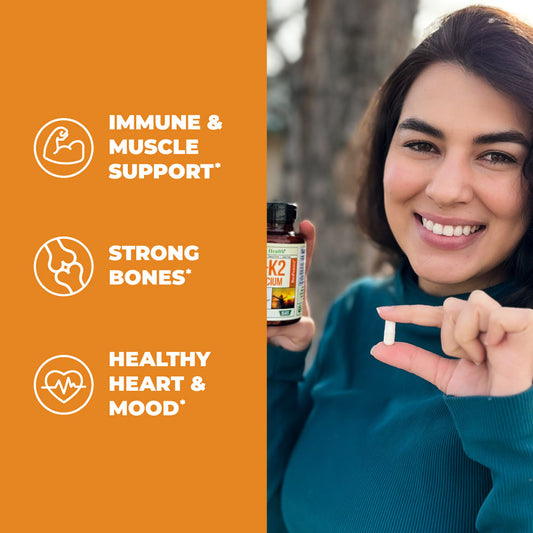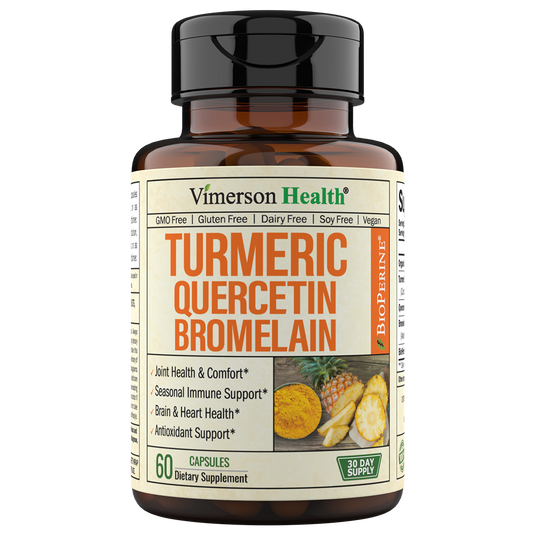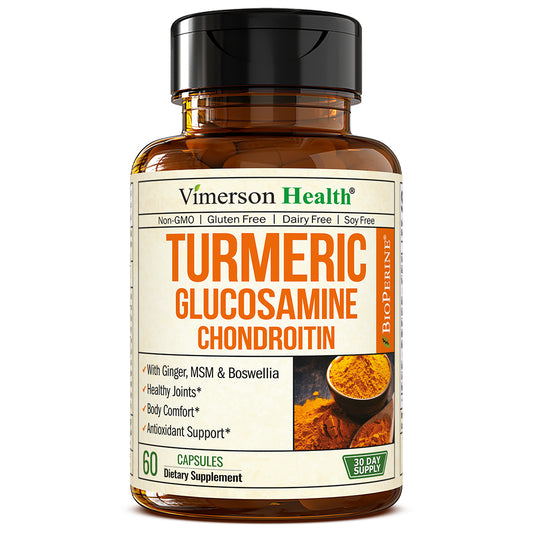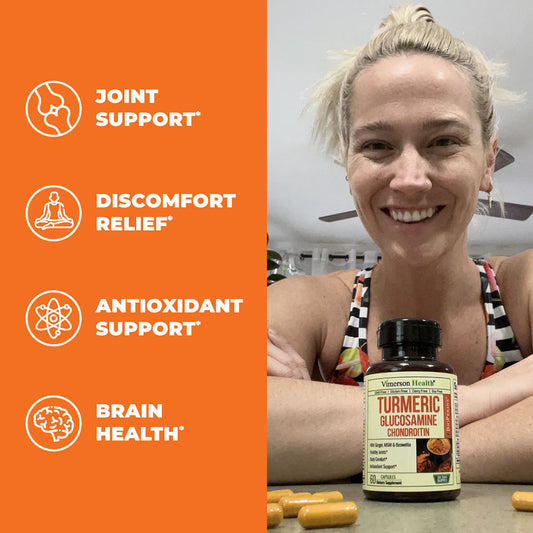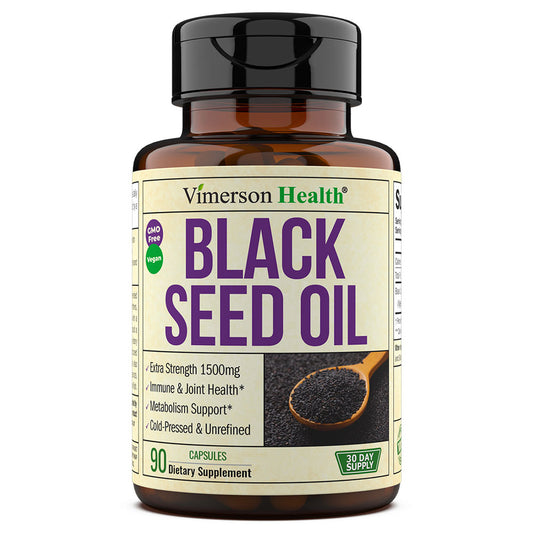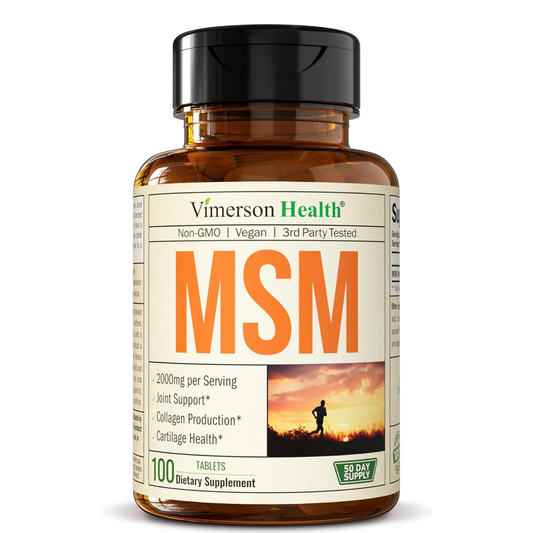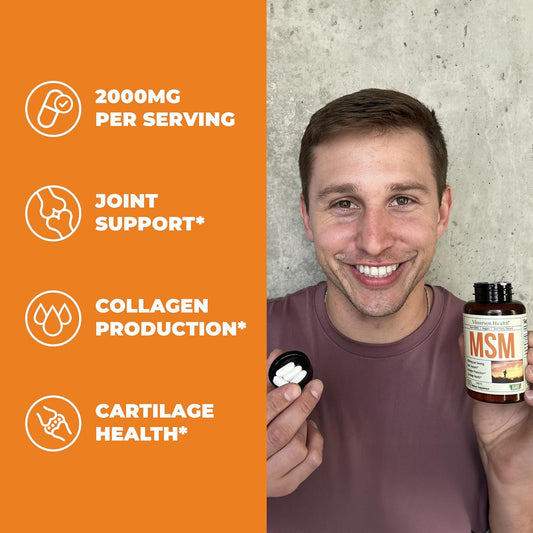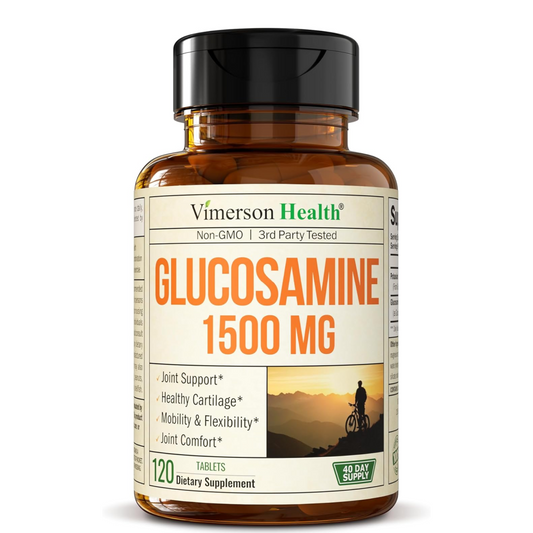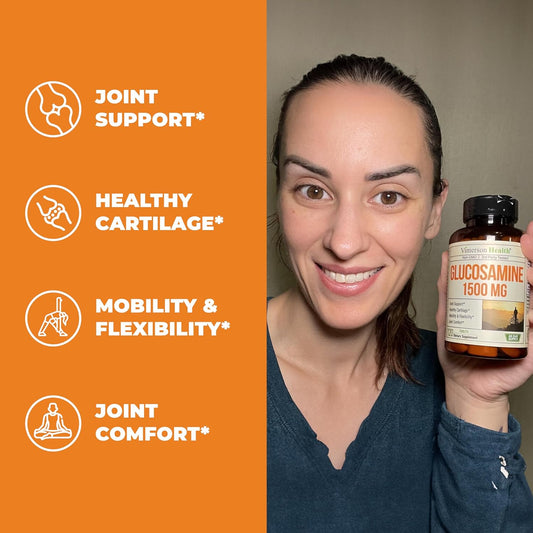
JOINT AND BONE HEALTH
-
GLUCOSAMINE CHONDROITIN SUPPLEMENT
Vendor:Vimerson HealthRegular price $28.97Regular priceUnit price / per -
VEGAN GLUCOSAMINE CHONDROITIN MSM SUPPLEMENT
Vendor:Vimerson HealthRegular price $29.97Regular priceUnit price / per -
TURMERIC CURCUMIN SUPPLEMENT
Vendor:Vimerson HealthRegular price $23.97Regular priceUnit price / per -
TURMERIC GINGER SUPPLEMENT
Vendor:Vimerson HealthRegular price $23.97Regular priceUnit price / per -
ORGANIC TURMERIC CURCUMIN SUPPLEMENT
Vendor:Vimerson HealthRegular price $24.97Regular priceUnit price / per -
GLUCOSAMINE + HYALURONIC ACID SUPPLEMENT
Vendor:Vimerson HealthRegular price $24.97Regular priceUnit price / per -
TURMERIC & HEMP SUPPLEMENT
Vendor:Vimerson HealthRegular price $23.97Regular priceUnit price / per -
GLUCOSAMINE + COLLAGEN SUPPLEMENT
Vendor:Vimerson HealthRegular price $25.97Regular priceUnit price / per -
GLUCOSAMINE + VITAMIN D3 SUPPLEMENT
Vendor:Vimerson HealthRegular price $26.97Regular priceUnit price / per -
TURMERIC CHAMOMILE SUPPLEMENT
Vendor:Vimerson HealthRegular price $23.97Regular priceUnit price / per -
TURMERIC GREEN TEA SUPPLEMENT
Vendor:Vimerson HealthRegular price $23.97Regular priceUnit price / per -
TURMERIC TART CHERRY SUPPLEMENT
Vendor:Vimerson HealthRegular price $22.97Regular priceUnit price / per -
TURMERIC ASHWAGANDHA & GINGER SUPPLEMENT
Vendor:Vimerson HealthRegular price $22.97Regular priceUnit price / per -
MAGNESIUM GLYCINATE SUPPLEMENT
Vendor:Vimerson HealthRegular price $24.97Regular priceUnit price / per -
D3 + K2 & CALCIUM SUPPLEMENT
Vendor:Vimerson HealthRegular price $23.97Regular priceUnit price / per -
TURMERIC QUERCETIN BROMELAIN SUPPLEMENT
Vendor:Vimerson HealthRegular price $23.97Regular priceUnit price / per -
TURMERIC GLUCOSAMINE CHONDROITIN SUPPLEMENT
Vendor:Vimerson HealthRegular price $22.97Regular priceUnit price / per -
BLACK SEED OIL SUPPLEMENT
Vendor:Vimerson HealthRegular price $25.97Regular priceUnit price / per -
MSM 2000 MG SUPPLEMENT
Vendor:Vimerson HealthRegular price $19.97Regular priceUnit price / per -
GLUCOSAMINE SULFATE 1500MG JOINT SUPPORT SUPPLEMENT
Vendor:Vimerson HealthRegular price $19.97Regular priceUnit price / per -
TURMERIC AND GINGER GUMMIES
Vendor:Vimerson HealthRegular price $24.97Regular priceUnit price / per -
GLUCOSAMINE CHONDROITIN SUPPLEMENT 2 PACK
Vendor:Vimerson HealthRegular price $45.97Regular priceUnit price / per
UNDERSTANDING JOINT AND BONE HEALTH
Joint and bone health are closely intertwined aspects of our musculoskeletal system. Joints are the connections between bones, enabling movement and providing stability. Bones, on the other hand, form the framework of our body, protect organs, and store minerals like calcium and phosphorus. The health of both joints and bones is crucial for maintaining mobility and overall physical function.

THE IMPORTANCE OF MOBILITY
Mobility is the ability to move freely and easily, and it is fundamental to our daily activities and quality of life. Whether it's walking, bending, or reaching, mobility allows us to perform tasks with independence and confidence. However, various factors can affect our mobility, including age, lifestyle choices, injuries, and certain medical conditions.
JOINT AND BONE HEALTH: ENHANCING MOBILITY FOR A FULFILLING LIFE
Taking care of our joints is important because they play a crucial role in mobility and physical activity, directly impacting our overall quality of life and enabling us to stay active and independent as we age. Neglecting joint health can lead to discomfort and hinder our ability to perform daily tasks and participate in desired activities, ultimately affecting our overall well-being.*

MORE ABOUT JOINT HEALTH
Joints are the connections between bones that allow for movement and flexibility. They play a pivotal role in our daily activities, from walking and running to picking up objects and performing various physical tasks. Joint health is directly linked to the integrity of the cartilage, which acts as a cushion between the bones, as well as the surrounding ligaments and tendons that provide support.
-
1. FACTORS AFFECTING JOINT HEALTH
Several factors can impact joint health, including age, genetics, lifestyle choices, and injuries. As we age, the cartilage may start to wear down, leading to joint stiffness and discomfort. Moreover, certain genetic factors may predispose individuals to conditions such as osteoarthritis, which affects the joints.
-
2. LIFESTYLE AND JOINT HEALTH
Maintaining an active lifestyle is crucial for joint health. Regular exercise helps strengthen the muscles around the joints, reducing the strain on the joint itself. Additionally, a balanced diet rich in nutrients like collagen, glucosamine, and omega-3 fatty acids can support joint health.*
-
3. PREVENTING JOINT INJURIES
Practicing caution during physical activities and sports can significantly reduce the risk of joint injuries. Wearing appropriate protective gear, warming up before exercise, and using proper techniques are essential for joint safety.
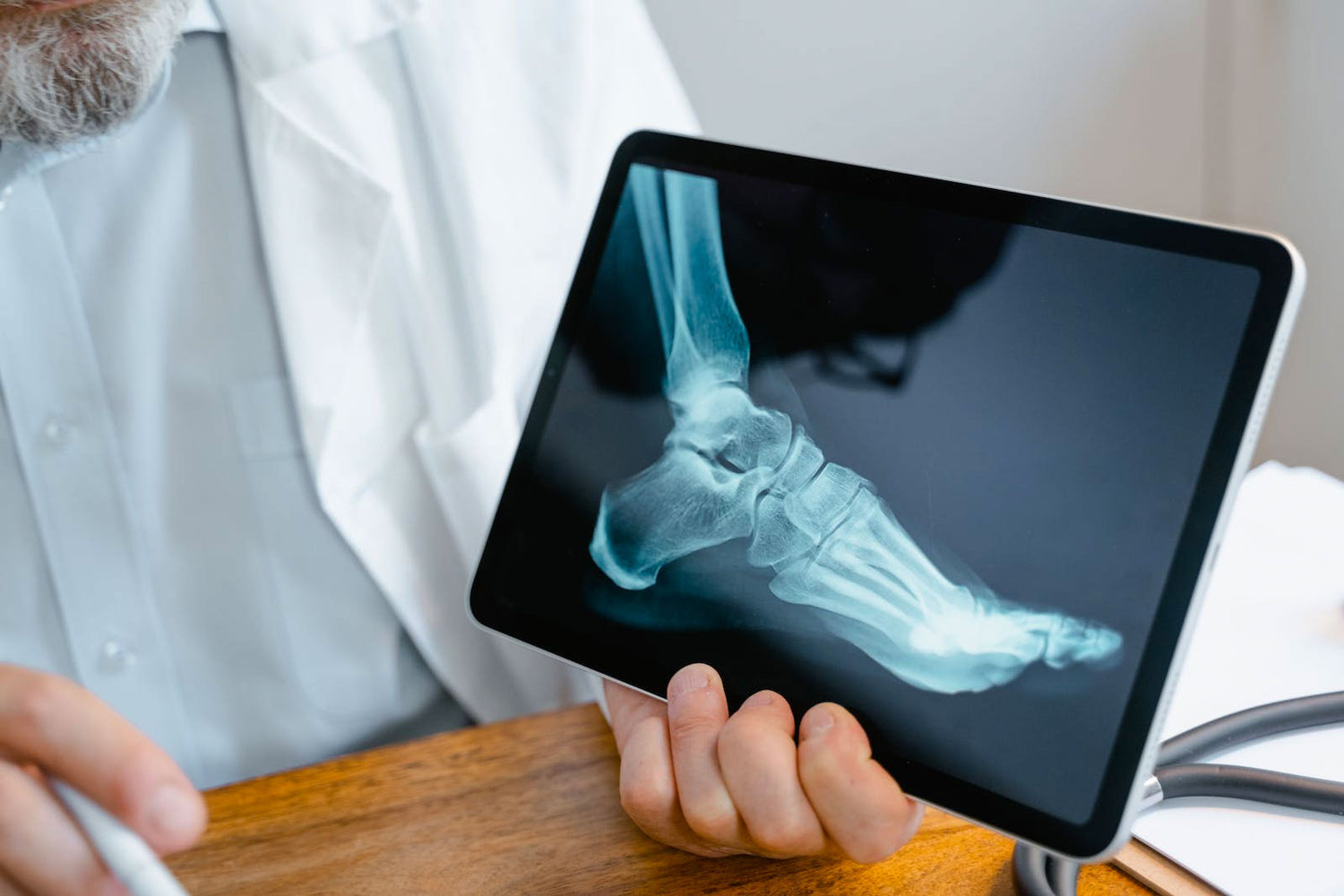
MORE ABOUT BONE HEALTH
Bones form the foundation of our body's structure and provide support and protection for vital organs. Bone health is critical for overall mobility, as it determines our ability to move freely and perform everyday tasks.
-
1. FACTORS AFFECTING BONE HEALTH
Just like joint health, bone health is influenced by various factors. Calcium and vitamin D intake, physical activity, hormonal changes, and certain medical conditions all play a role in bone health.
-
2. THE ROLE OF CALCIUM AND VITAMIN D
Calcium is the building block of bones, and vitamin D is essential for calcium absorption. A diet rich in calcium and vitamin D, along with exposure to sunlight, can support bone health.
-
3. WEIGHT-BEARING EXERCISES FOR BONES
Weight-bearing exercises, such as walking, jogging, and dancing, help stimulate bone remodeling, making them stronger and more resistant to fractures.
4 FACTORS CAN IMPACT THE HEALTH OF OUR JOINTS AND BONES
VIEW SUPPLEMENTS-

AGE
As we age, our bones may lose density, and cartilage can wear down, leading to increased vulnerability to joint conditions like osteoarthritis.
-

DIET AND NUTRITION
A diet lacking in essential nutrients, particularly calcium and vitamin D, can weaken bones and hinder joint health.
-

PHYSICAL ACTIVITY
Regular exercise is crucial for maintaining joint and bone health. Weight-bearing exercises and strength training can help strengthen bones and promote joint flexibility.
-

INJURY AND OVERUSE
Injuries and overuse of joints, especially in sports and physically demanding occupations, can contribute to joint and bone problems later in life.
WEIGHT MANAGEMENT FOR JOINT HEALTH
Maintaining a healthy weight is essential for reducing the strain on our joints, especially weight-bearing ones like knees and hips. Excess body weight can lead to increased wear and tear on joints, contributing to conditions such as osteoarthritis. A balanced diet and regular physical activity are key components of weight management.
PROMOTING JOINT AND BONE HEALTH THROUGHOUT LIFE
Maintaining joint and bone health is a lifelong commitment. Regardless of age, adopting healthy habits can significantly impact mobility and overall well-being.
-

CHILDHOOD AND ADOLESCENCE
During childhood and adolescence, proper nutrition is essential for the development of strong bones. Encouraging physical activity and sports participation can also contribute to healthy bone growth and joint development.
-

ADULTHOOD
As we age, it becomes even more crucial to focus on joint and bone health. Engaging in regular exercise, maintaining a balanced diet, and managing chronic conditions can all contribute to healthy joints and bones.
-

SENIORS
In seniors, preventing falls and fractures is of utmost importance. Regular exercise that includes balance and strength training can help reduce the risk of falls, while proper nutrition and medical management can support bone health.
LIFESTYLE STRATEGIES FOR OPTIMAL JOINT AND BONE HEALTH
CHOOSE MY SUPPLEMENT-
1. STAY ACTIVE
Engage in regular physical activities like walking, swimming, or yoga to enhance joint flexibility, strengthen bones, and reduce the risk of joint issues effectively.
-
2. MAINTAIN A BALANCED DIET
Ensure your diet includes nutrient-rich foods with calcium and vitamin D sources, such as dairy products, leafy greens, and fortified foods, to support strong bones and joints.
-
3. AVOID SEDENTARY BEHAVIOR
Limit prolonged periods of sitting to prevent joint stiffness, maintain bone strength, and promote overall joint health for better mobility and well-being.
-
4. PRACTICE PROPER BODY MECHANICS
Employ correct body mechanics when lifting or performing physical tasks to avoid undue stress on joints and bones, reducing the risk of injury.
-
5. MAINTAIN A HEALTHY WEIGHT
Excess weight can burden joints, particularly those in the knees and hips. Maintaining a healthy weight reduces the load on joints and supports bone health.
-
6. PROTECT YOUR JOINTS
Utilize appropriate protective gear during physical activities and sports to prevent injuries, safeguard joint health, and maintain an active lifestyle.
-
7. STAY HYDRATED
Maintain adequate hydration to ensure joint cartilage remains lubricated, promoting smooth movement and supporting overall joint health.
-
8. AVOID SMOKING AND LIMIT ALCOHOL INTAKE
Refrain from smoking as it weakens bones and limit alcohol intake to prevent interference with calcium absorption, maintaining strong bones and joint integrity.
-
9. INCORPORATE HERBS AND SUPPLEMENTS
Consider integrating herbs like turmeric and supplements like fish oil and glucosamine, known for their potential to support joint health and balance inflammation effectively.
GOING DEEPER INTO EVERY NEED FOR HEALTHY JOINTS AND BONES

✦ REGULAR EXERCISE FOR JOINT FLEXIBILITY
Regular physical activity is essential for joint and bone health, as it helps maintain flexibility, strength, and overall function.
- Engage in weight-bearing exercises like walking, running, and dancing to promote bone density.
- Include low-impact activities such as swimming and cycling to reduce joint strain.
- Participate in strength training exercises to support muscle strength and joint stability.
- Warm-up before exercise and cool down afterward to prevent injuries.
- Listen to your body and avoid overexertion, especially if you have joint conditions.
- Consider activities like yoga and tai chi to improve flexibility and balance.
✦ PROPER NUTRITION FOR STRONG BONES
A well-balanced diet rich in essential nutrients is crucial for joint and bone health.
- Ensure adequate calcium intake through dairy products, leafy greens, and fortified foods.
- Consume foods high in vitamin D, like fatty fish and fortified milk, to support calcium absorption.
- Incorporate vitamin C-rich foods such as citrus fruits and bell peppers to promote collagen production.
- Include sources of omega-3 fatty acids, like fatty fish and flaxseeds, to balance inflammation.
- Eat foods rich in antioxidants, such as berries and nuts, to protect joint tissues from oxidative stress.
- Limit processed and sugary foods, as they may contribute to inflammation and bone loss.
✦ AVOID SEDENTARY OR INACTIVE LIFESTYLE
Prolonged periods of inactivity can negatively affect joint and bone health.
- Take regular breaks from sitting to stretch and move around.
Incorporate standing desks or ergonomic setups to reduce sedentary time at work. - Participate in light physical activities during breaks, like walking or stretching.
- Limit screen time and encourage physical play for children and teenagers.
- Use reminders or activity trackers to prompt movement throughout the day.
✦ PRACTICE GOOD POSTURE
Using correct body mechanics can reduce strain on joints and bones and prevent injuries.
- Lift heavy objects with your legs, not your back, to protect your spine and joints.
- Avoid repetitive motions that can cause joint overuse injuries.
- Maintain good posture while sitting, standing, and walking to reduce stress on the spine and joints.
- Use proper techniques during exercise and sports to minimize the risk of injury.
✦ HEALTHY WEIGHT FOR HEALTHY JOINTS
Maintaining a healthy weight is essential for joint and bone health, as excess weight can strain joints and increase the risk of osteoarthritis.
- Follow a balanced diet and engage in regular physical activity to manage weight.
- Seek support from healthcare professionals or dietitians to create a personalized weight management plan.
- Focus on gradual and sustainable weight loss if needed, avoiding crash diets.
✦ PROTECT YOUR JOINTS
Protecting your joints from injuries and wear and tear is crucial for long-term joint health.
- Use appropriate protective gear during sports and physical activities to prevent joint injuries.
- Avoid activities that put excessive strain on your joints, especially if you have pre-existing joint conditions.
- Use joint supports, such as braces or splints, as recommended by healthcare professionals.
- Be mindful of proper body alignment during exercise and daily activities to reduce joint stress.
✦ SMOKING-ALCOHOL AND BONES
Smoking and excessive alcohol consumption can negatively impact joint and bone health.
- Quit smoking to reduce the risk of osteoporosis and improve circulation to joint tissues.
- Limit alcohol intake, as excessive alcohol consumption can weaken bones and increase the risk of fractures.
✦ INCORPORATE HERBS AND SUPPLEMENTS
Certain herbs and supplements may support joint and bone health.*
- Consider glucosamine and chondroitin supplements, which may help with occasional back, knees and hands discomfort.*
- Turmeric and ginger are herbs with inflammation balance properties that may benefit joint health.*
- MSM (Methylsulfonylmethane) supplements, which may support joint health and balance inflammation in some individuals.*
TOP 3 BENEFITS OF TAKING A SUPPLEMENT FOR JOINT AND BONE HEALTH
SHOP ALL-

ENHANCED JOINT FLEXIBILITY
BEST SUPPLEMENT FOR JOINTSSpecially formulated supplements can nourish cartilage and support joint lubrication, resulting in improved joint flexibility. Reduced stiffness and discomfort enable smoother, more comfortable movement, allowing individuals to maintain an active and dynamic lifestyle.*
-

HEALTHY BONES AND STABILITY
BEST SUPPLEMENT FOR BONESSupplements enriched with vital minerals like calcium, magnesium, and vitamin D can promote healthy bones. Healthy bones provide better stability, reducing the risk of fractures and supporting overall skeletal health.*
-

PROMOTED MOBILITY AND ACTIVE LIVING
BEST SUPPLEMENT FOR MOBILITYBy fostering joint and bone health, supplements contribute to enhanced mobility, enabling individuals to embrace a more active lifestyle. Increased freedom of movement empowers individuals to engage in daily activities and physical pursuits with greater ease and confidence.*
TOP 3 INGREDIENTS FOR BONE & JOINT HEALTH
All Ingredients-
GLUCOSAMINE
Glucosamine is a natural compound found in healthy cartilage. It plays a crucial role in maintaining joint health by supporting the formation and repair of cartilage tissue. It is commonly used in dietary supplements to help alleviate joint discomfort and promote flexibility and mobility.
-
TURMERIC
Turmeric is a vibrant yellow spice that contains a potent compound called Curcumin. Curcumin is known for its powerful inflammatory balance properties, which can help balance joint inflammation and ease discomfort. Turmeric is often used in supplements to support joint health and promote overall well-being.
-
MSM
MSM is a naturally occurring sulfur compound that is essential for healthy joint function. It is involved in the formation of connective tissues, including tendons and ligaments, and helps maintain the flexibility and elasticity of joints. MSM is commonly included in dietary supplements to support joint mobility and promote recovery after exercise.
#1 GLUCOSAMINE ON AMAZON🥇
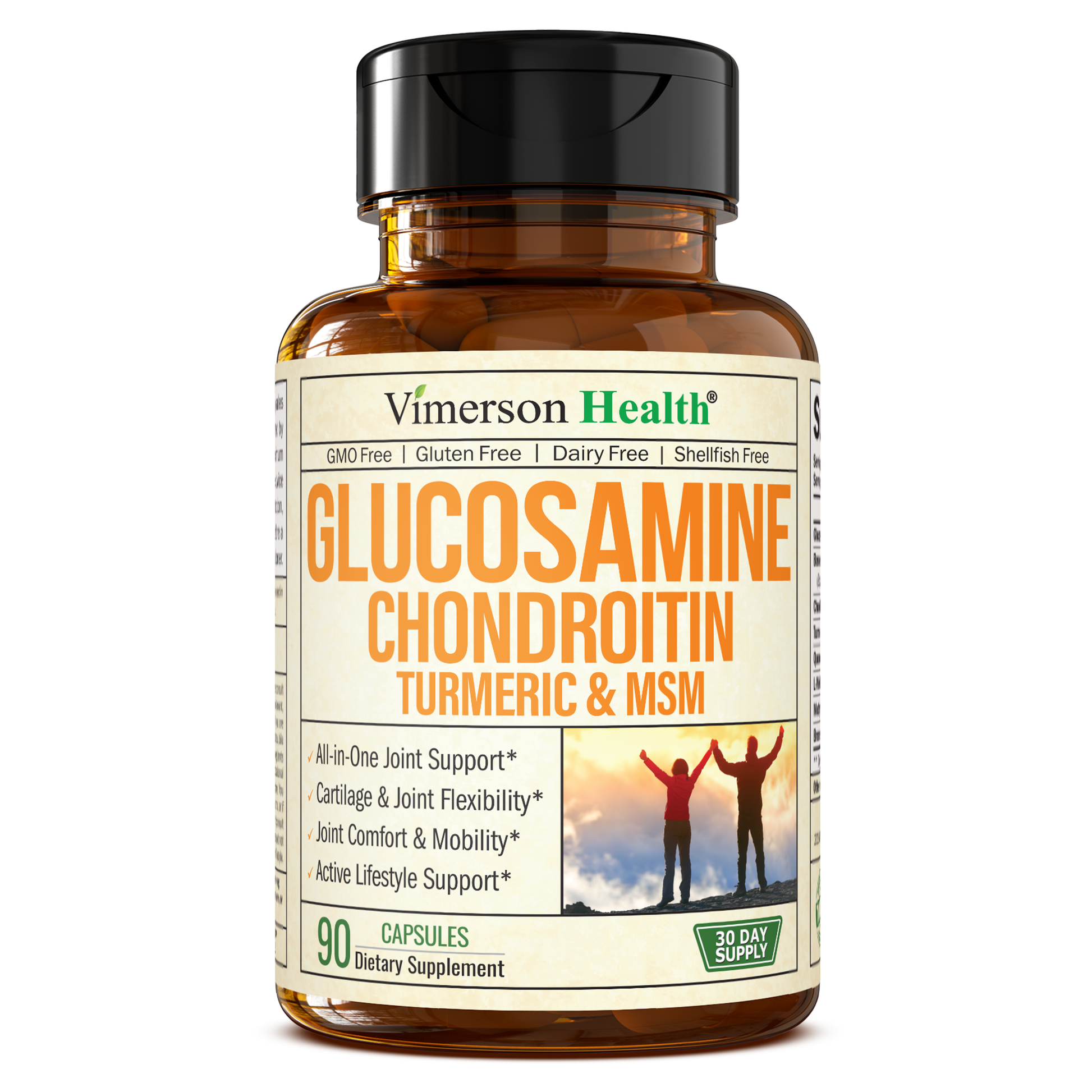

Vimerson Health
GLUCOSAMINE CHONDROITIN SUPPLEMENT
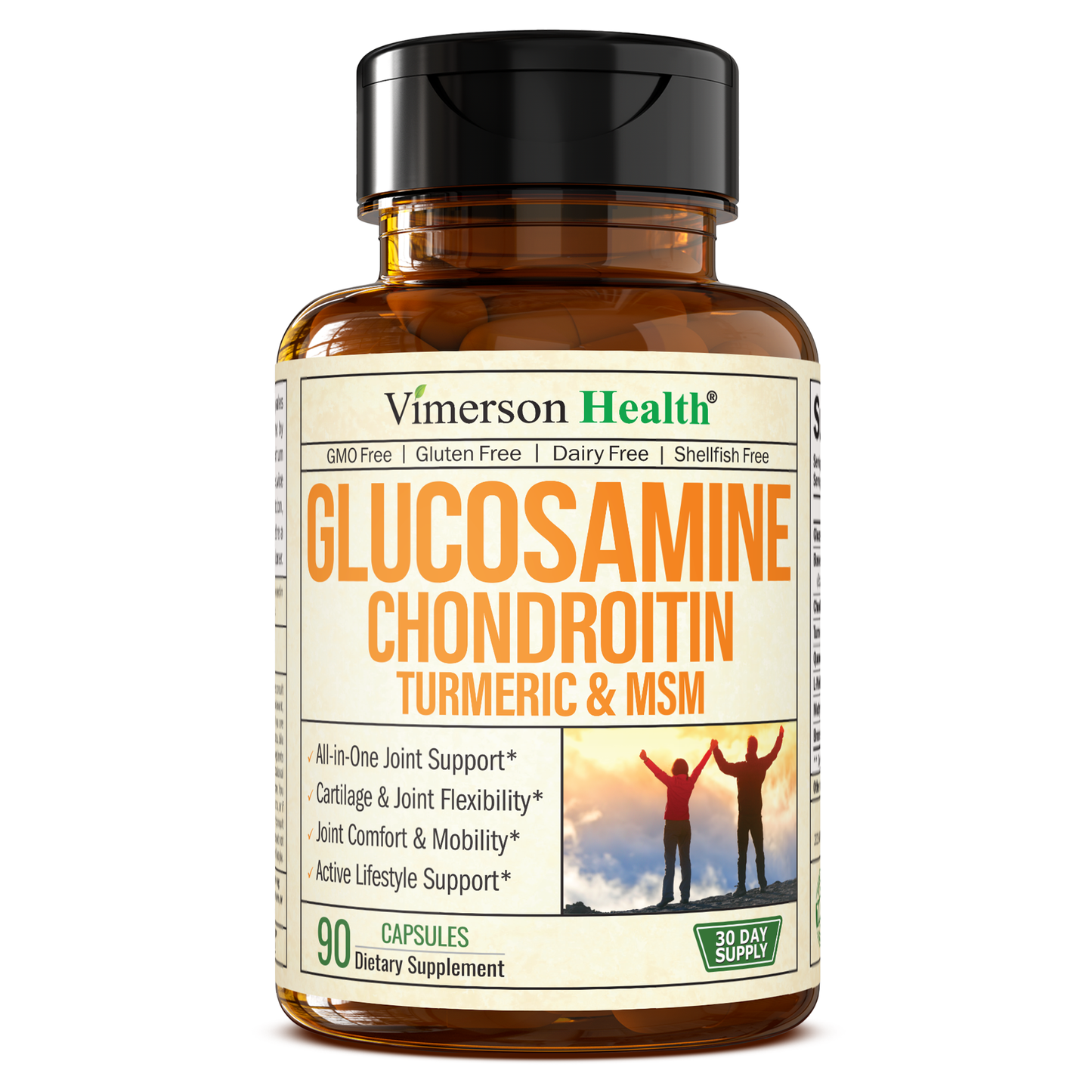
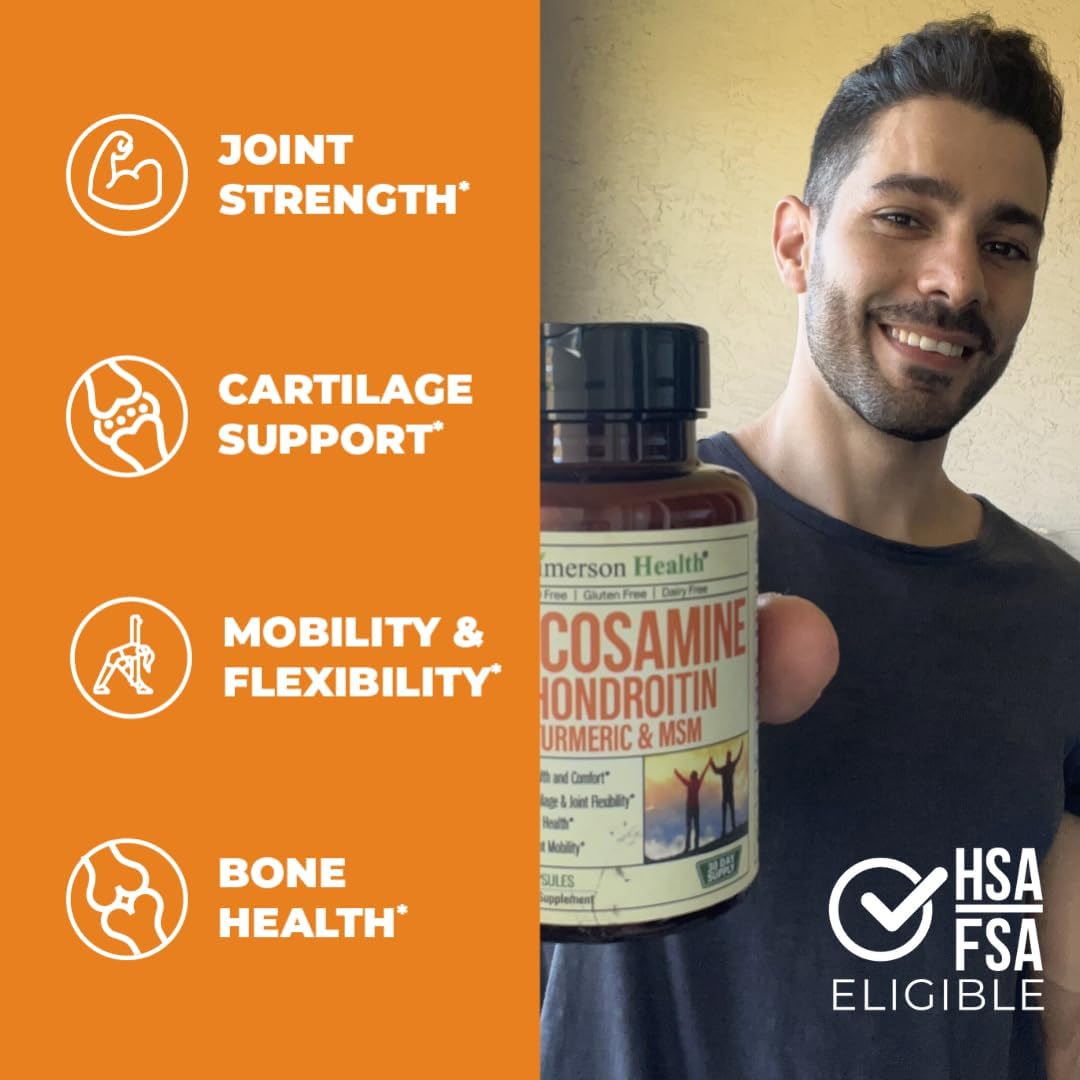
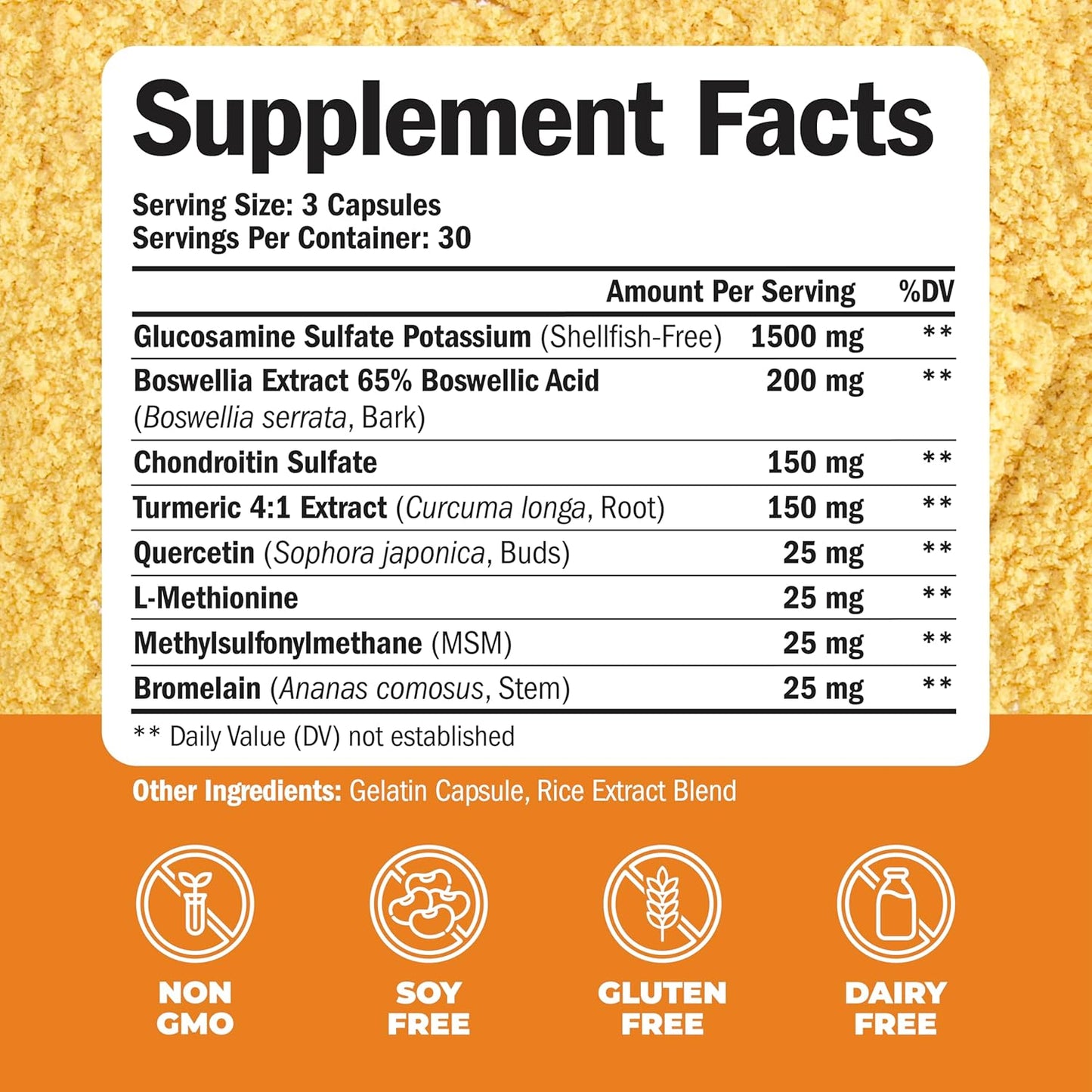

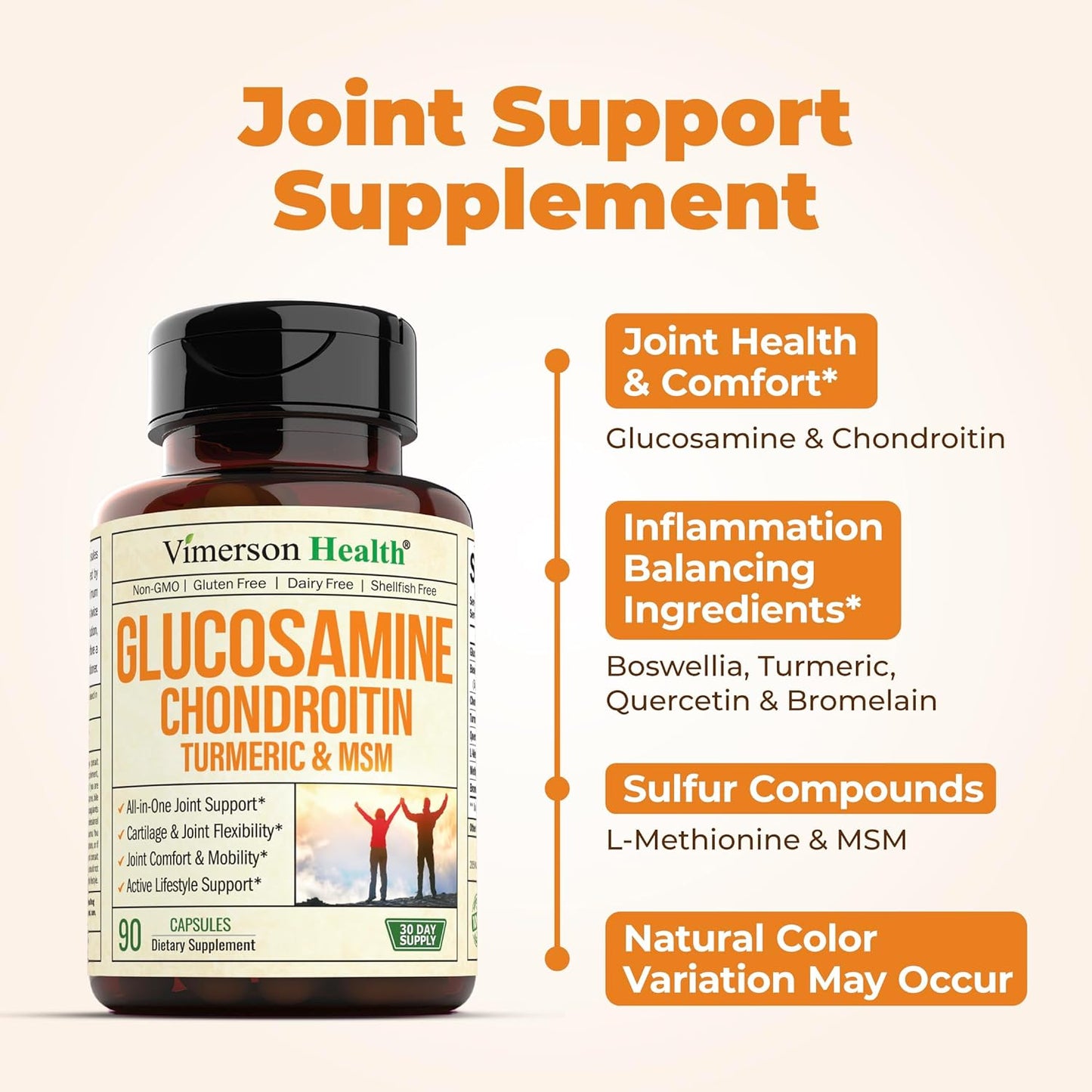

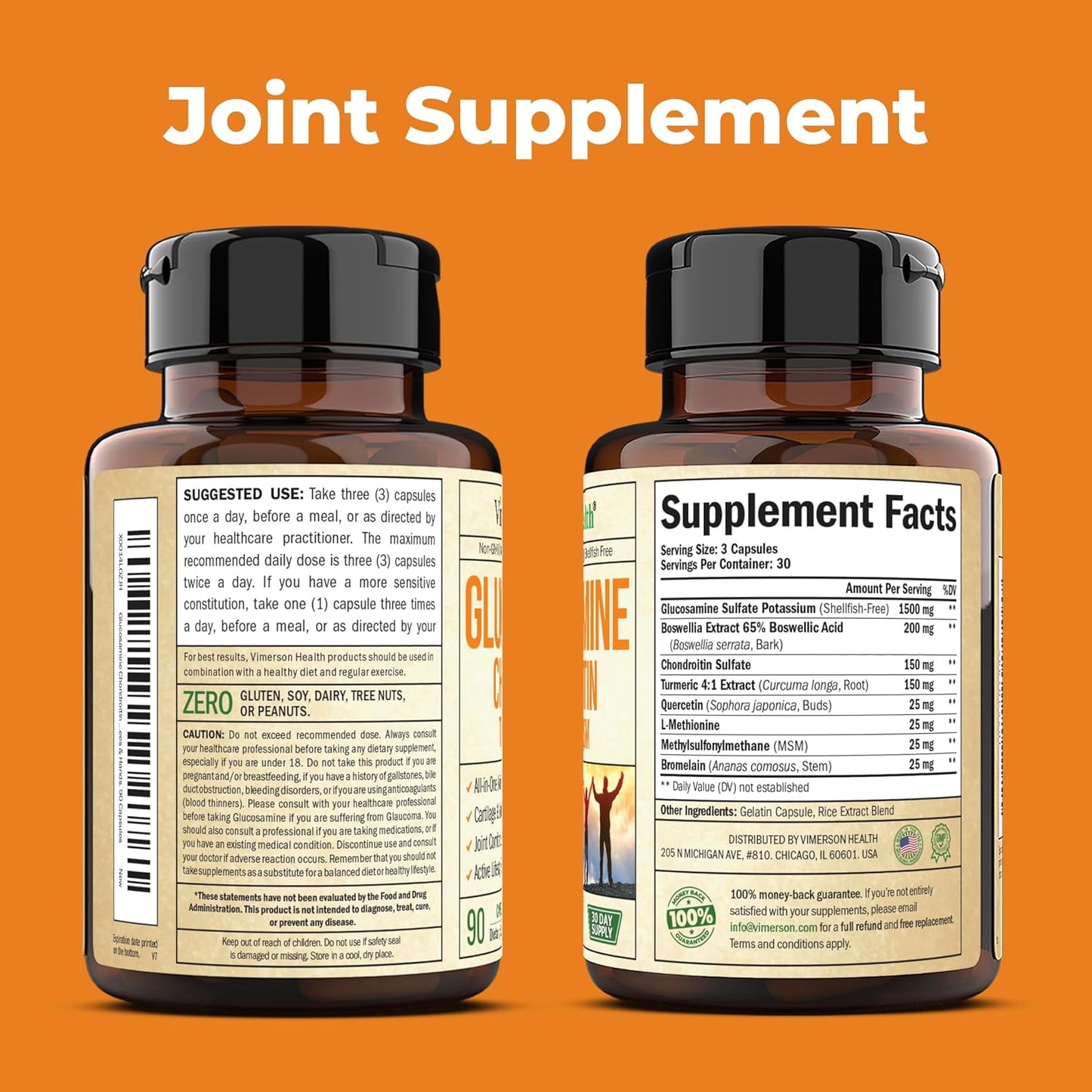



CONCLUSION: ENHANCING MOBILITY FOR A FULFILLING LIFE
Joint and bone health are fundamental components of mobility and overall well-being. By adopting a proactive approach to joint and bone care, including staying physically active, maintaining a balanced diet, and practicing good posture, you can significantly enhance your mobility and lead a fulfilling life.
Remember, small lifestyle changes can make a big difference in the long run. Prioritize your joint and bone health today, and enjoy the benefits of improved mobility and vitality throughout your life.
ℹ Frequently Asked Questions About Joint & Bone Health
WHAT ARE THE BEST SUPPLEMENTS TO TAKE FOR YOUR JOINTS?
For joint health and inflammation balance, consider these supplements: glucosamine, chondroitin, MSM, and collagen. These may support cartilage and joint function.* Additionally, vitamins C and D, as well as turmeric, may offer benefits.* Always consult your healthcare provider before adding new supplements to your regimen.
DO JOINT PILLS REALLY WORK?
The effectiveness of joint pills in supporting inflammation balance and joint health can vary. Some individuals may experience positive results, while others may not notice significant benefits. It's essential to consider the ingredients, quality, and individual response.*
WHAT VITAMIN MAKES YOUR JOINTS FEEL BETTER?
Vitamin D is known to support inflammation balance and joint health.* Adequate vitamin D levels may help improve occasional joint discomfort and overall well-being.* However, it's essential to maintain a balanced diet, including other joint-friendly nutrients like magnesium and antioxidants, and consult your healthcare provider for personalized recommendations.
WHAT DOES GLUCOSAMINE CHONDROITIN DO FOR YOUR BODY?
Glucosamine chondroitin may support joint health and inflammation balance.* Glucosamine helps maintain cartilage, while chondroitin supports joint flexibility and cushioning.* These supplements are believed to aid joint function, but individual responses vary.
IS IT SAFE TO TAKE GLUCOSAMINE CHONDROITIN DAILY?
Taking glucosamine chondroitin daily is generally considered safe for most people. However, it's essential to consult with a healthcare provider before starting any supplement regimen, especially if you have existing health conditions or are taking other medications. They can provide personalized guidance based on your individual health needs and potential interactions.
WHAT CAN BE THE REASON FOR PAIN IN FINGERS?
Pain in fingers can have various causes. Common reasons include overuse, injury, arthritis, or conditions like carpal tunnel syndrome. Additionally, inflammation balance plays a role in joint health. If you experience persistent or severe finger pain, it's important to consult a healthcare provider for proper evaluation and treatment.
WHAT VITAMIN IS BEST FOR BONE HEALTH?
Vitamin D is essential for bone health and inflammation balance. It helps the body absorb calcium, promoting healthy bones and teeth.* Adequate sunlight exposure, fortified foods, and supplements can boost vitamin D levels. Along with calcium-rich foods, vitamin K and magnesium also contribute to overall bone health.*
WHAT IS THE BEST SUPPLEMENT TO INCREASE BONE DENSITY?
The best supplement to support bone health is calcium.* It plays a vital role in maintaining healthy bones.* Vitamin D is also crucial for calcium absorption.* Along with a balanced diet, these supplements can contribute to better bone health and inflammation balance.* Consult your healthcare provider for personalized recommendations.
HOW CAN I STRENGTHEN MY BONES AND JOINTS?
To maintain bones and joints healthy, adopt a healthy lifestyle. Consume a balanced diet with calcium-rich foods like dairy products, leafy greens, and supplements, along with vitamin D for better absorption.* Engage in regular weight-bearing exercises, such as walking or strength training. Avoid smoking and excessive alcohol consumption. Proper nutrition and exercise contribute to overall bone health and inflammation balance.*
* These statements have not been evaluated by the Food and Drug Administration. This product is not intended to diagnose, treat, cure, or prevent any disease.

